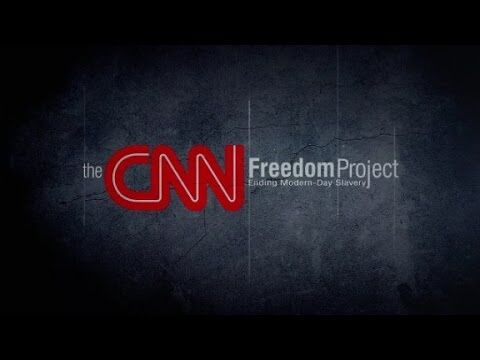According to a 2013 study presented by the Human Trafficking and the State Courts Collaborative Project, 5,000 girls are at risk of being trafficked in the state of Georgia, and 100 juvenile girls are exploited every night within the state. Atlanta, the study said, has the highest number of trafficked Hispanic females in the nation.
Defined by The Federal Trafficking Victims Protection Act, sex trafficking is “the recruitment, harboring, transportation, provision, or obtaining of a person for the purpose of a commercial sex act where such an act is induced by force, fraud, or coercion, or in which the person induced to perform such act has not attained 18 years of age.”
In an interview with CNN, Jada Pinkett Smith discussed her newest project — a CNN special called “Children for Sale: The Fight to End Human Trafficking” — which tackles the issue of child sex trafficking. Pinkett Smith has become an advocate for in Atlanta. At age 11, her daughter Willow Smith came to her and asked, “Mommy, did you know that girls my age are being sold for sex?” This encounter prompted Pinkett Smith’s further research on the issue.
In the interview, she describes human trafficking as “modern-day slavery,” and in a sense, I believe it is, too. The age of most sex trafficking victims starts at the age of 9 which actually, according to kidshealth.org, is the age most girls start to begin puberty — where they develop the physically as grown women. Various credible studies report that victims of sex trafficking range from ages 9 to 26. These ages are include young children, teens and adults — however, the sexual activities these victims have to endure are the same — to both fulfill a john’s fantasy and also to produce money for pimps, according to the CNN special.
The documentary dives into the specifics of human trafficking in Atlanta. The investigative team Pinkett Smith worked with was led by Sgt. Torrey Kelley, head of the Internet Crimes Against Children Unit (ICAC) of DeKalb County.
As I conducted research and found stories of survivors of sex trafficking, one case in particular touched me. Her name is Sula Skiles, and she was trafficked at the age of 21; in an interview with KRCG 13, she talks about her journey. At age 21, as a up-and-coming model, she was given the opportunity to go live in another country with a billionaire to do modeling work (specifics were not given for the protection of her family). After,checking things out, they seemed to be legit, so she jumped at the opportunity. She even talks about how she received a one-way ticket and thought nothing of it due to the greatness of the opportunity as a young model. Once she arrived in the other country, Skiles was told that she had been sold to the billionaire and his girlfriend for sexual exploitation. Her horror only lasted about three weeks because she was able to gain the trust of her “owners” and eventually got a ticket back to the states. However, all women do not make it out; she was a lucky survivor.
The CNN special aired on July 21, and the survivors’ journeys really opened my eyes to the epidemic happening right here in our city. Several survivors of sex trafficking were rescued; however, the victims who were found often did not admit to the trafficking. They were also very reluctant to give up any information about the whereabouts of their pimps or other girls. One of the victims, whom Jada Pinkett Smith interviewed, also talked about how many of the girls and women who were trafficked continued the process because most of them gained acceptance from working with these men. Most victims, I realized, come from broken homes where there is no type of father figure in sight and/or they struggled with problems at school or socially. The men who take these women into their care typically become these father figures — and the void the victims wanted them to fill. In a way, I describe it as a form of manipulation to make these men/women money. The Pimps force these women to often times have sex with 40 men a day, according to a survivor’s testimony within the number This obviously would have to have some type of effect on the victims.
With research, and watching this documentary, I definitely learned a lot and found that often times, especially in Atlanta, human trafficking is happening right in front of ours eyes. However, it may feel hard for one person to recognize it and to do something about it. What you can do as a citizen is report suspicious activity and be aware of human trafficking itself.
If you are a victim (or want to help bring attention to the topic and justice for victims) of human trafficking, there are plenty of local resources:
1. Tapestri Inc.
3939 Lavista Road, Suite E
Tucker, GA 30084
(404) 299-2185
(866) 317-3733 (outside Metro Atlanta)
860 Johnson Ferry Road
Suite 140-331
Atlanta, GA 30342
(770) 631-8888
F (770) 631-8830
(404) 602-0068
